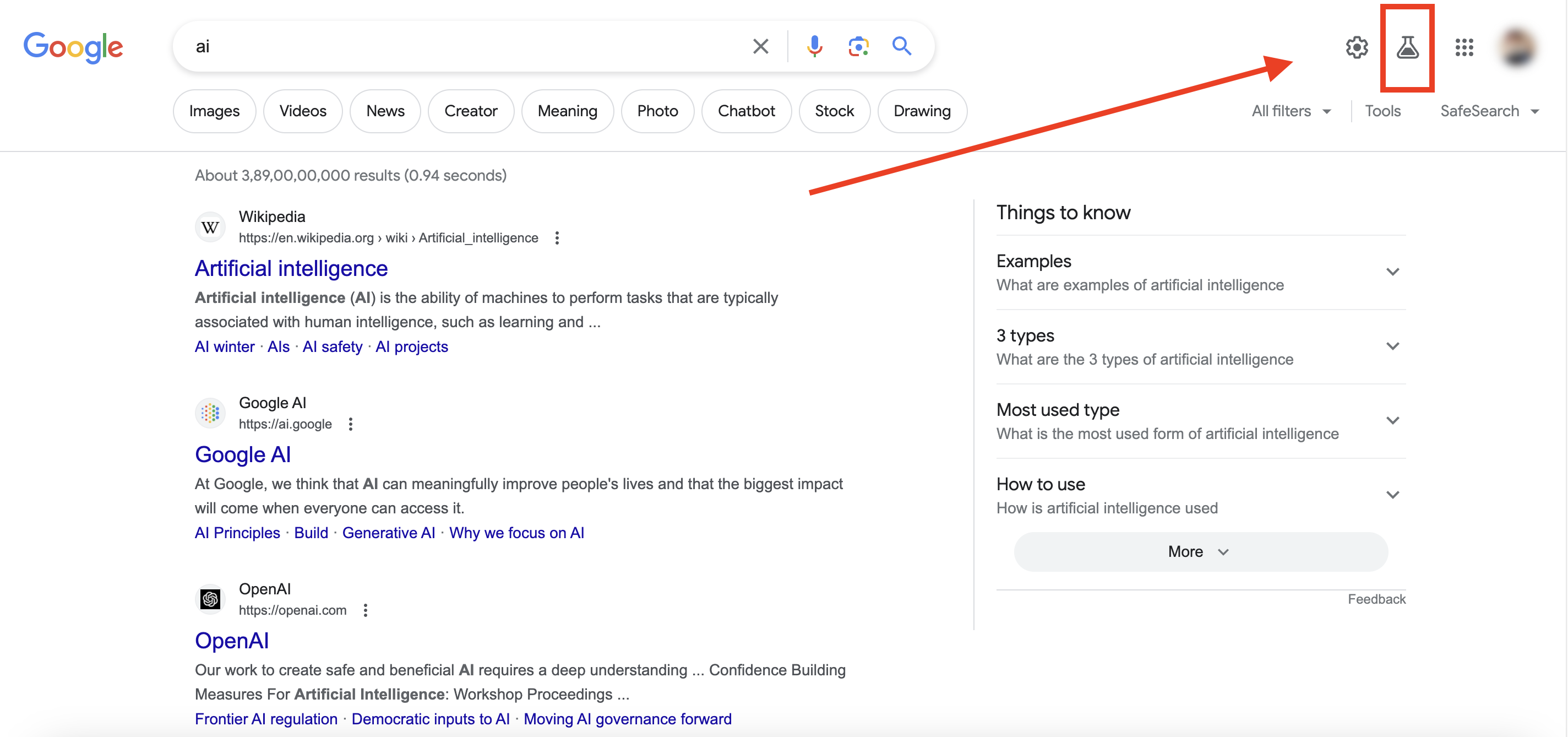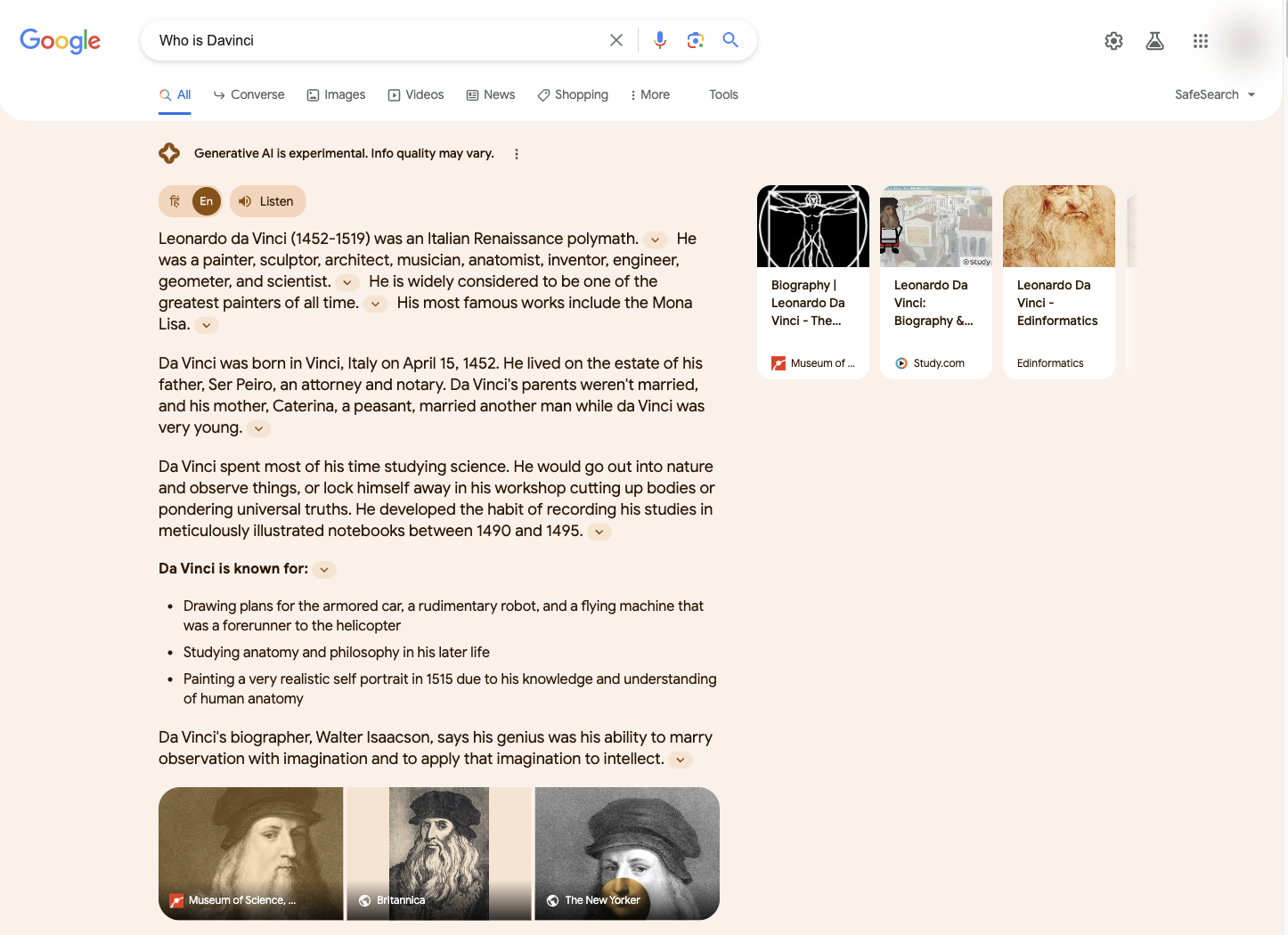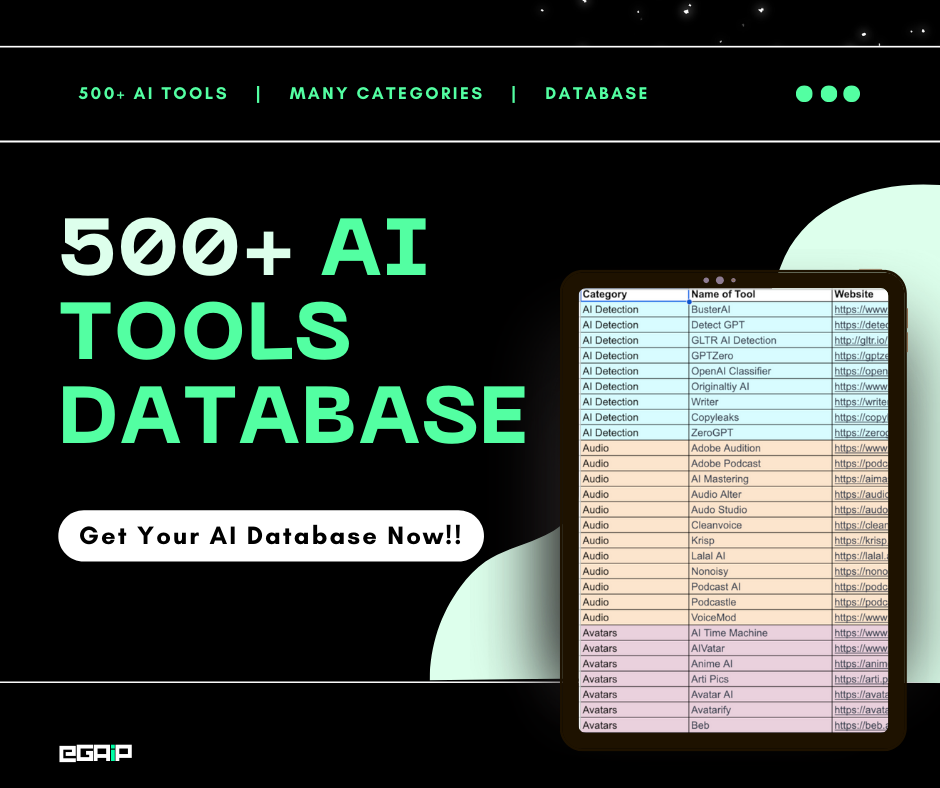- Google's new Search Generative Experience (SGE) uses AI to offer search summaries, worrying publishers.
- Publishers fear losing web traffic and ad revenue due to the new feature, and many feel left in the dark about how it works.
- Google has introduced an opt-out tool, but uncertainty remains over whether publishers will be compensated for their content.
October 20, 2023: Google has taken a new step towards deeper artificial intelligence (AI) integration. The company recently introduced a search feature called Search Generative Experience (SGE), which uses generative AI to provide summarized answers to search queries.
While the tech giant aims to improve user experience, the media industry sees it as a disruptive challenge.

The new search experience works by showing short summaries at the top of the Google search homepage in response to specific queries.
If you ask, “Who is Davinci?”, the feature provides a concise three-paragraph summary with additional links for further information.

According to Google, this summary is drawn from multiple web sources and aims to provide a convenient jumping-off point for users.
However, publishers are increasingly concerned. SGE’s summaries sometimes use information from publishers’ websites, but these sites are not always credited or compensated for their content.
To avoid this, publishers must opt out of Google search entirely, making them virtually invisible on the internet.
Google’s spokesperson noted, “As we bring generative AI into Search, we’re continuing to prioritize approaches that send valuable traffic to a wide range of creators, including news publishers.”
The rollout of SGE in the United States, India, and Japan has put media companies on alert. Several publishers, who spoke on condition of anonymity, expressed fears that SGE could take away valuable web traffic.
Moreover, SGE pushes down traditional search results, possibly leading to a 40% reduction in traffic, according to one executive. Nikhil Lai, a senior analyst at Forrester Research, said, “SGE is definitely going to decrease publishers’ organic traffic, and they’re going to have to think about different metrics for their content.”
Adding to these concerns is the lack of transparency from Google. Publishers say they are in the dark about how the new AI-based search works.
One publisher executive described it as a “black box,” unsure of how to adapt to it. In contrast, Google claims that publishers do not need to do anything different to appear in search results.
Google recently released a tool called Google-Extended, which lets publishers block their content from being used for AI training.
Overall, publishers find themselves in a complicated relationship with Google. On one hand, they rely on the search giant for web traffic.
On the other, new features like SGE threaten to take that traffic away, all while using publishers’ content without clear compensation or credit.
Google says it’s open to feedback and will improve the tool over time, but for publishers, the future remains uncertain.









